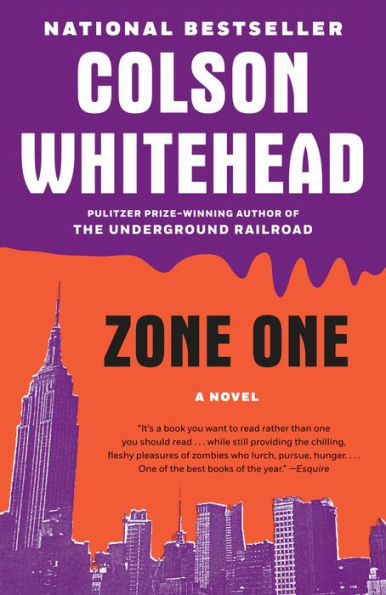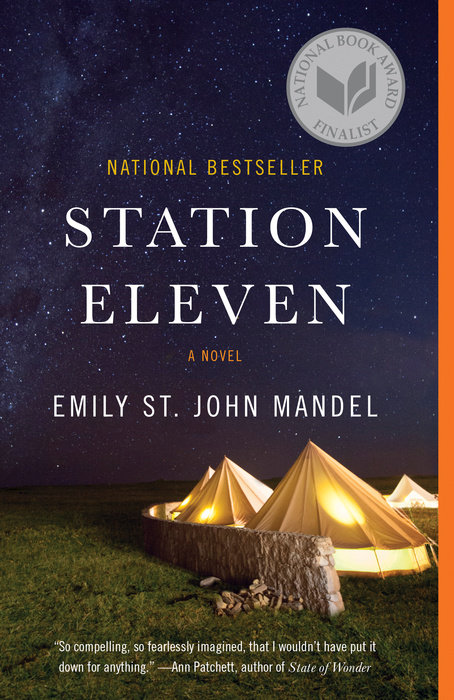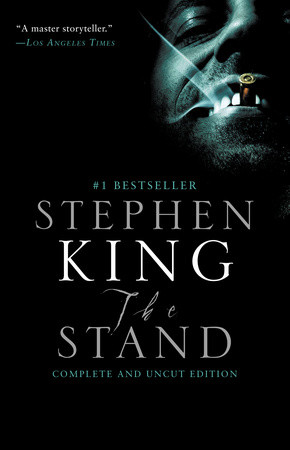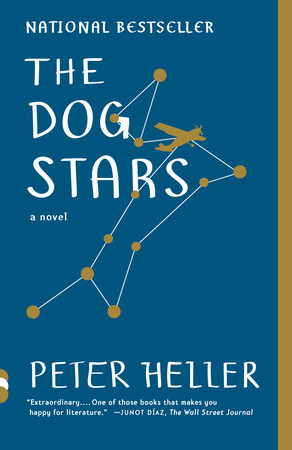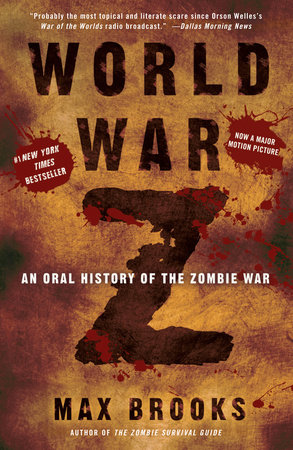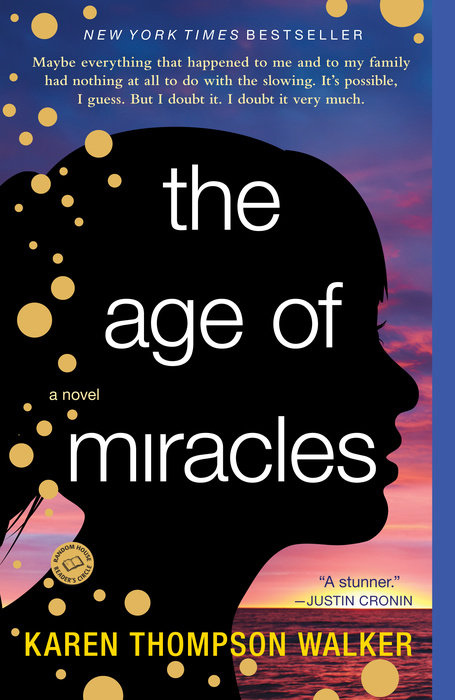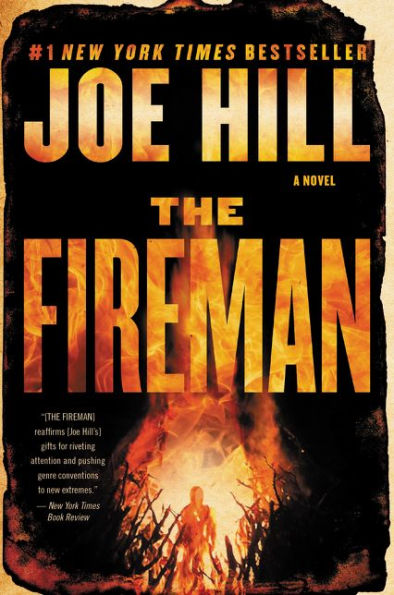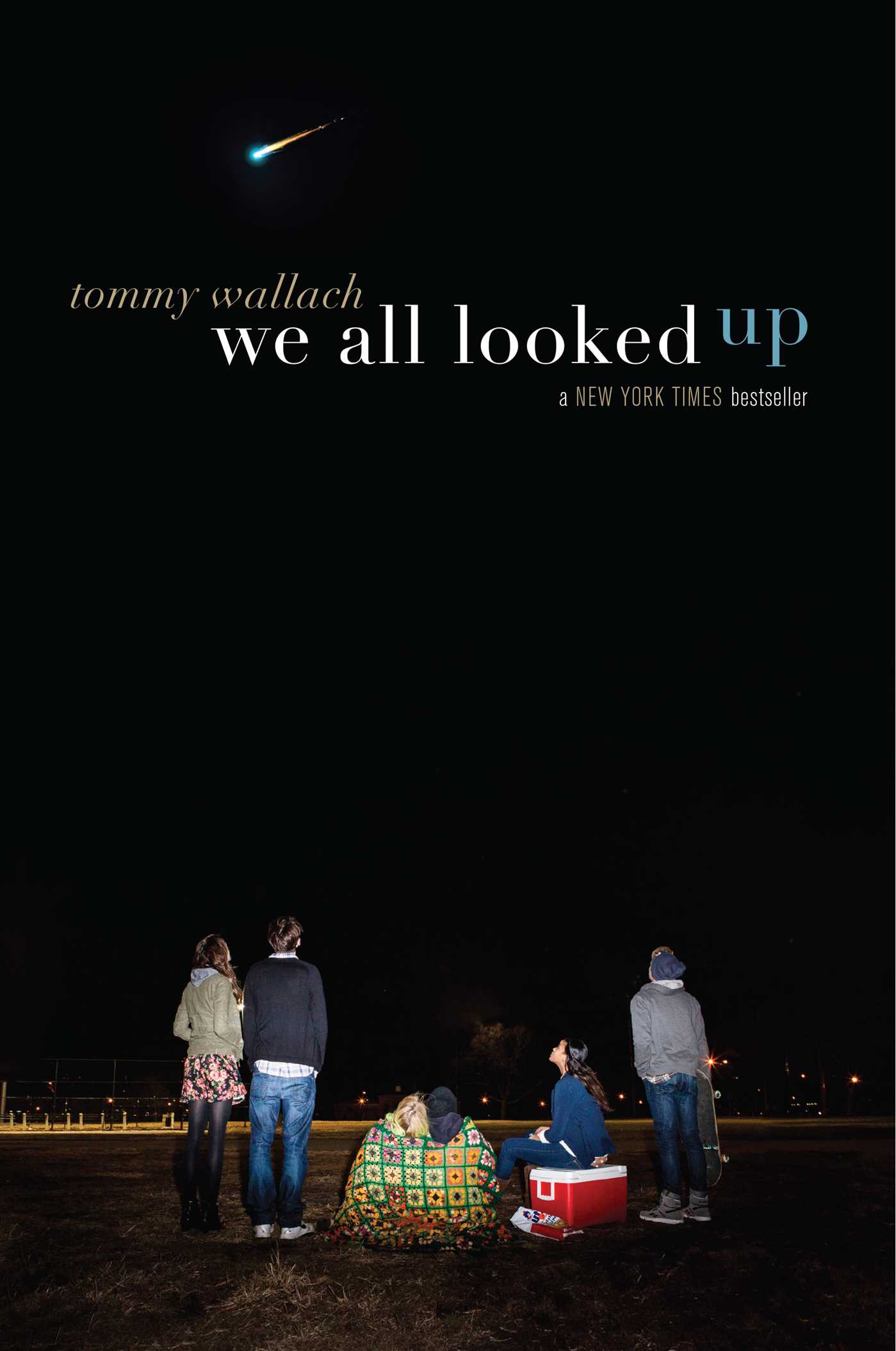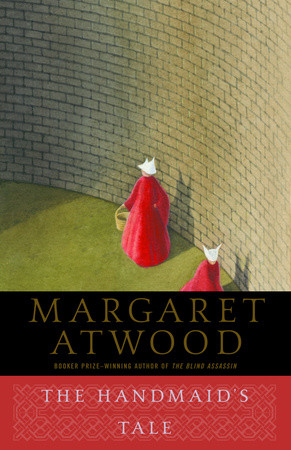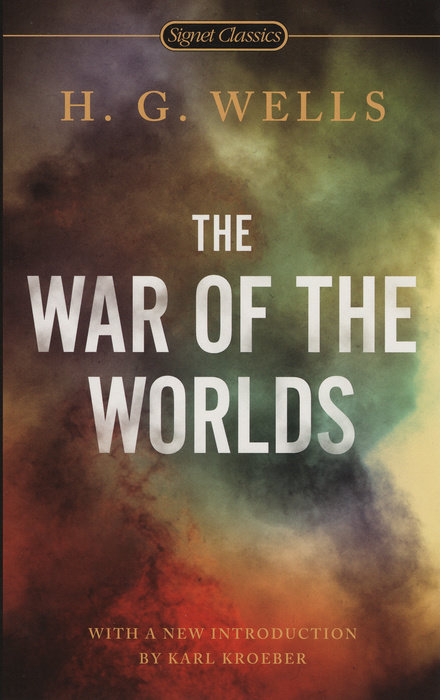It’s seemed that in this election cycle, the only thing that both sides can agree upon is that if their candidate is not chosen, it will be the end of our country as we know and love it. We here at Off the Shelf, in the spirit of unity, would like to offer a reminder that while things might seem bleak, they could be much, much worse (though we could probably learn a thing or two). Here is a list of our favorite books in which politics is the last thing on people’s minds, to take it off yours, too.
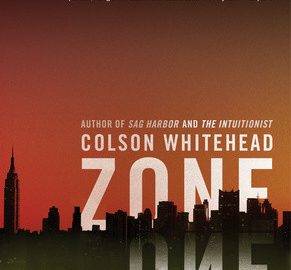
It’s the End of the World as We Know It: 13 Profound Books of Pessimism, Plagues, and Pandemics
In Colson Whitehead’s acclaimed novel, a pandemic has ravaged the planet, dividing humanity into two groups: the infected and the non-infected. Over the course of three days, Mark Spitz, a member of a unit charged with clearing lower Manhattan of the infected, comes to terms with the fallen world and the new dangers that have emerged.
In Colson Whitehead’s acclaimed novel, a pandemic has ravaged the planet, dividing humanity into two groups: the infected and the non-infected. Over the course of three days, Mark Spitz, a member of a unit charged with clearing lower Manhattan of the infected, comes to terms with the fallen world and the new dangers that have emerged.
A finalist for the 2014 National Book Award, this audacious, darkly glittering novel isn’t your average dystopian novel. Taking place before and after a pandemic that irrevocably alters our entire society, it’s a profound and unforgettable tale of how people stay connected and find solace in art, and each other, at the end of the world.
For fans of “The Walking Dead”
While “The Walking Dead” hero Rick Grimes and his gang are keeping hope alive but losing their grip fast after a zombie apocalypse, STATION ELEVEN’s Kirsten Raymonde and her band, the Symphony, have dedicated themselves to keeping the remnants of art and humanity alive after a mysterious pandemic has ravaged civilization.
MENTIONED IN:
An apocalyptic classic, Stephen King’s novel is a vision of a world ravaged by plague and caught in a bitter struggle between good and evil. When a patient escapes from a biological testing facility, carrying with him a strain of super-flu that destroys a majority of the population, two surviving leaders emerge. Whoever is chosen will lead—and change—humanity forever.
An apocalyptic classic, Stephen King’s novel is a vision of a world ravaged by plague and caught in a bitter struggle between good and evil. When a patient escapes from a biological testing facility, carrying with him a strain of super-flu that destroys a majority of the population, two surviving leaders emerge. Whoever is chosen will lead—and change—humanity forever.
MENTIONED IN:
Hig lives with his dog, Jasper, in a small abandoned airport after the end of the world. But when a random transmission comes through his radio, he feels a hope that he thought was long gone. Risking everything, he flies a plane to follow a static-y trail that will challenge everything he knows and believes to be true.
Hig lives with his dog, Jasper, in a small abandoned airport after the end of the world. But when a random transmission comes through his radio, he feels a hope that he thought was long gone. Risking everything, he flies a plane to follow a static-y trail that will challenge everything he knows and believes to be true.
The Zombie War has come to an end, and Max Brooks has traveled across the world to find and preserve the stories of those on the front lines. From the men, women, children, doctors, politicians, and ordinary citizens who watched the world nearly come to an end, the reader sees a staggering and troublingly realistic account of geopolitics, and how the world deals with catastrophe.
Perfect for fans of Margaret Atwood, THE AGE OF MIRACLES follows a young girl named Julia and her family as they discover that the world’s rotation has shifted. As a result, days and nights are changing, gravity is affected, and everything is thrown into chaos. Growing up is hard enough, but doing so in such conditions is something entirely different.
“THE AGE OF MIRACLES was so frightening because the apocalypse begins as an annoyance, like a lipstick that has melted. Walker’s greatest device is that the end of the world comes incrementally, almost casually, and each turned page winds the reader just a little more tightly.”
MENTIONED IN:
We all know the expression “Big Brother is watching” thanks to George Orwell’s dystopian classic, but another important takeaway is the organization to which the mythical figure belongs: “The Party.” As protagonist Winston Smith rewrites history (literally) for the Ministry of Truth to ensure that the historical record always agrees with the Party’s stance, he dreams of rebelling against the system. Unsettling and uncannily prescient, it’s a book that in recent years has seemed to scream “fact” rather than “fiction.”
MENTIONED IN:
Mary Shelley is best known for her gothic classic FRANKENSTEIN, but this novel is equally stunning and scary. Set in the late twenty-first century, the book exposes a somber and pessimistic view of society and humanity, as man is forced to confront the idea of inevitable destruction. It’ll have you flipping back and forth between the page and the news on your television screen to compare and contrast.
Mary Shelley is best known for her gothic classic FRANKENSTEIN, but this novel is equally stunning and scary. Set in the late twenty-first century, the book exposes a somber and pessimistic view of society and humanity, as man is forced to confront the idea of inevitable destruction. It’ll have you flipping back and forth between the page and the news on your television screen to compare and contrast.
Joe Hill’s novel, like many of the others on this list, features a pandemic, but of a different sort: fire. No one knows exactly why people are suddenly spontaneously combusting, but millions are being affected and no one is safe. One couple is faced with the possibility—and probable inevitability—of becoming sick, and as they become increasingly unhinged, society descends into chaos.
Joe Hill’s novel, like many of the others on this list, features a pandemic, but of a different sort: fire. No one knows exactly why people are suddenly spontaneously combusting, but millions are being affected and no one is safe. One couple is faced with the possibility—and probable inevitability—of becoming sick, and as they become increasingly unhinged, society descends into chaos.
Four high school seniors are faced with the prospect of their lives ending before they even really begin, when the news is delivered that an asteroid is heading for Earth, with certain impact and destruction. Peter, Eliza, Anita, and Andy all occupy different social spaces in school, but interact in the most realistic and touching of ways, making this a memorable and oddly hopeful apocalyptic story.
Four high school seniors are faced with the prospect of their lives ending before they even really begin, when the news is delivered that an asteroid is heading for Earth, with certain impact and destruction. Peter, Eliza, Anita, and Andy all occupy different social spaces in school, but interact in the most realistic and touching of ways, making this a memorable and oddly hopeful apocalyptic story.
Offred lives in the near future where women’s bodies are controlled by the state and only valued for their reproductive capabilities. Offred can remember a time when she was free to have a job, read a book, make money, and have a relationship with her husband, but all of that is gone. With equal parts humor and horror, this novel serves as a relevant and profound warning that still resonates decades after its publication.
Offred is a Handmaid in the Republic of Gilead. She may leave the home of the Commander and his wife once a day to walk to food markets whose signs are now pictures instead of words because women are no longer allowed to read. She must lie on her back once a month and pray that the Commander makes her pregnant, because in an age of declining births, Offred and the other Handmaids are only valued if their ovaries are viable. Offred can remember the days before, when she lived and made love with her husband Luke; when she played with and protected her daughter; when she had a job, money of her own, and access to knowledge. But all of that is gone now.... Funny, unexpected, horrifying, and altogether convincing, The Handmaid's Tale is at once scathing satire, dire warning, and tour de force.
A modern masterpiece, Cormac McCarthy’s post-apocalyptic tale follows a father and son as they walk alone through a (literally) burned America, hoping to reach the coast. It darkly and boldly imagines a future in which little hope remains, but the potential of humanity still exists. It shows the best and worst of what people are capable of, and what keeps two people together in the face of total destruction.
Cormac McCarthy was long an influence of mine before this novel. It is one of the few books I can recall that has kept me awake at night. It is bleak, gritty, hurtful, and I think extraordinarily human.
MENTIONED IN:
Though this science fiction classic was first published in 1897, the story reached an unbelievable level of infamy when it was read over CBS Radio in 1938 and unsuspecting listeners, not realizing that it was simply a broadcast performance, thought that there was actually an alien invasion about to occur. Today, all you have to do is turn on a news channel or check Twitter to experience the same kind of panic.
Though this science fiction classic was first published in 1897, the story reached an unbelievable level of infamy when it was read over CBS Radio in 1938 and unsuspecting listeners, not realizing that it was simply a broadcast performance, thought that there was actually an alien invasion about to occur. Today, all you have to do is turn on a news channel or check Twitter to experience the same kind of panic.

